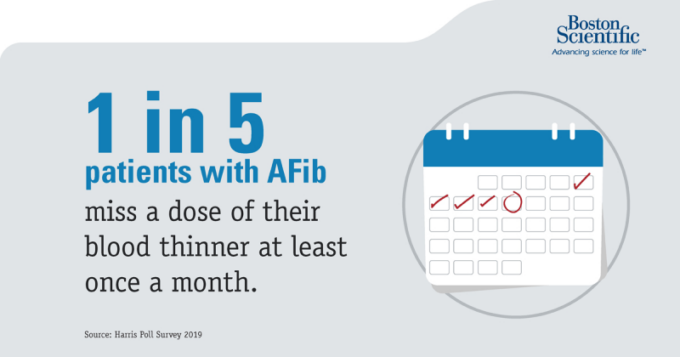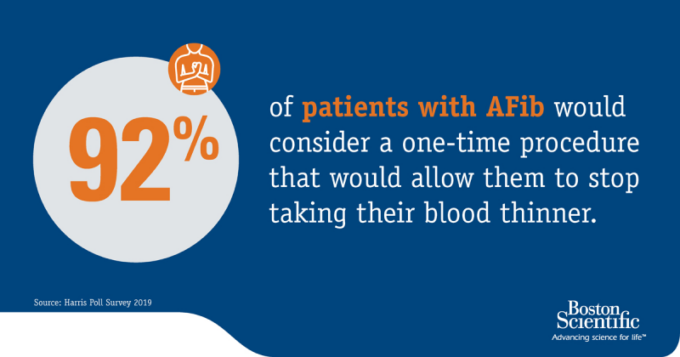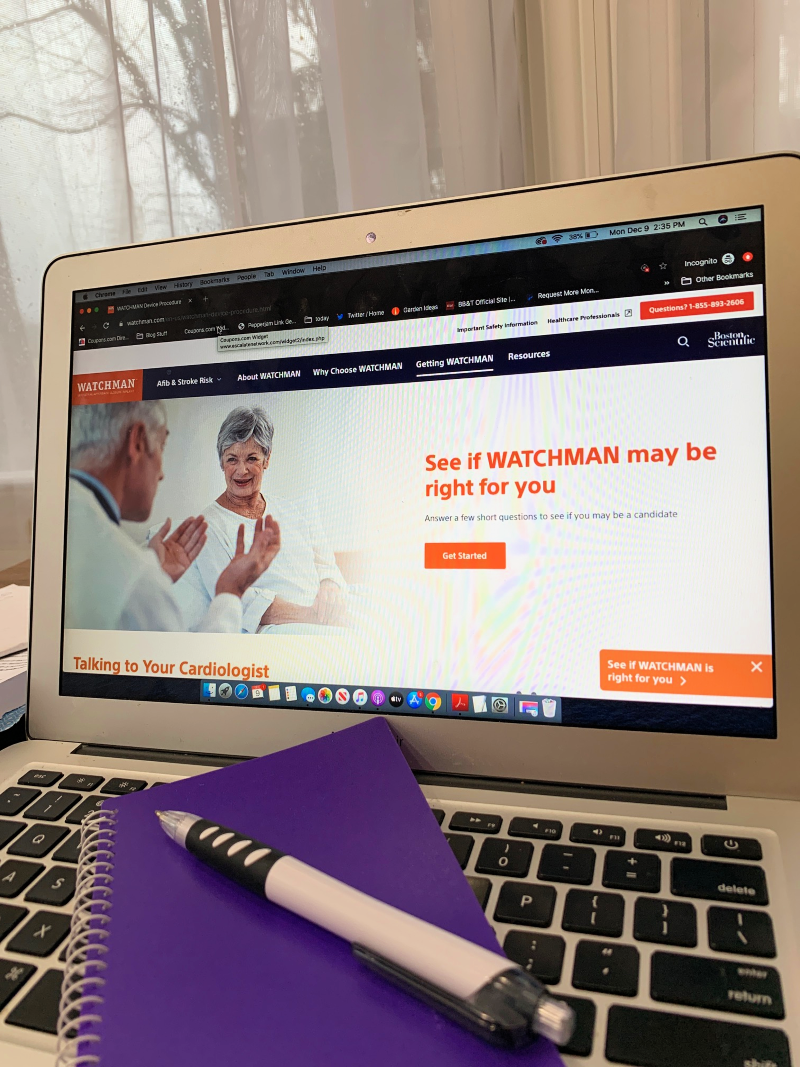Have you heard about the WATCHMAN Device?
Have you heard about the WATCHMAN Device?
This post was sponsored by Boston Scientific as part of an Influencer Activation for Influence Central. I have no personal experience with the device and all opinions shared are my own.
If you or someone you love has been diagnosed with non-valvular atrial fibrillation they are probably using a blood thinner to reduce their risk of stroke, and you will want to learn more about an alternative in the form of the WATCHMAN™ Left Atrial Appendage Closure Device. If you have AFib not caused by a heart valve problem, educating yourself about the options is important.
Do You Know What AFib is?
AFib, also known as Atrial fibrillation, is the most common type of irregular heartbeat. Over five million Americans are affected by it. When you have been diagnosed with this type of cardiac arrhythmia you carry five times more risk of having a stroke than someone with a normal heartbeat. It is always a good idea to have a relationship with a doctor and stay proactive about your health options.

I am not being currently being treated for AFib and neither is my husband, but we are proactive about our health. We want to keep enjoying this empty nest season, travel and have fun. Don’t hesitate to seek medical advice for you or a loved one.
What is the WATCHMAN device?
Good question! 82% of patients in a recent Harris Survey disclosed that they have never heard of it. The WATCHMAN is a permanent Left Atrial Appendage Closure heart implant and the only FDA-approved device alternative to warfarin, a common blood thinner, proven to reduce stroke risk in people with non-valvular AFib on the market. If you or someone you know with non-valvular AFib is using blood thinners to reduce your risk of stroke and needs an alternative, you should ask your cardiologist about the risks and benefits of the WATCHMAN device.
You can be proactive at home. Use your mobile device or computer and visit the WATCHMAN website to find out if you or a loved one may benefit from a WATCHMAN device.
How does it work?
The WATCHMAN is implanted with a one-time minimally invasive procedure. It has a proven safety record and, for most people, it can eliminate the need for warfarin, a common blood thinner, in individuals diagnosed with non-valvular AFib. 100,000 patients worldwide have had the WATCHMAN device implanted.

Why Should I Encourage a Loved One to Ask a Cardiologist about WATCHMAN?
This is a biggie. The results of a recent Harris survey by Boston Scientific of patients with non-valvular atrial fibrillation revealed that many patients with AFib aren’t using their prescription blood thinners correctly and are prone to missing doses. Additionally, almost half of the survey respondents shared that they had to visit a specialist in the past year because of complications associated with their condition/blood thinners.

21% of AFib patients surveyed reported missing a dose of their blood thinner at least once in a 30-day period, putting them at risk for stroke. 47% of those patients do not to tell their doctor that they aren’t following their treatment schedule.

Also in that survey, 92% of patients with AFib responded that they would consider a one-time procedure that would allow them to discontinue blood thinners, which are associated with a number of risks – such as bleeding – and lifestyle challenges. Finding out if your loved one is a candidate for the WATCHMAN device may help prevent unwanted costs and complications caused by blood thinners. Weighing your options is always important. As with any medical procedure, also be sure to ask your doctor about the risks associated with the device, including internal bleeding, stroke, and others.
Those numbers are startling and could cause adverse health situations to so many. Please ask about all of the AFib related options available.

Where Can I Find More Information?
There are two simple ways to gather more information and find out if the WATCHMAN device is right for you or a loved one. Visit the WATCHMAN website for information and resources. Also, plan to talk with the medical team and the cardiologist that knows the AFib history. Be proactive. Ask questions. Get answers. Heart health is important!




